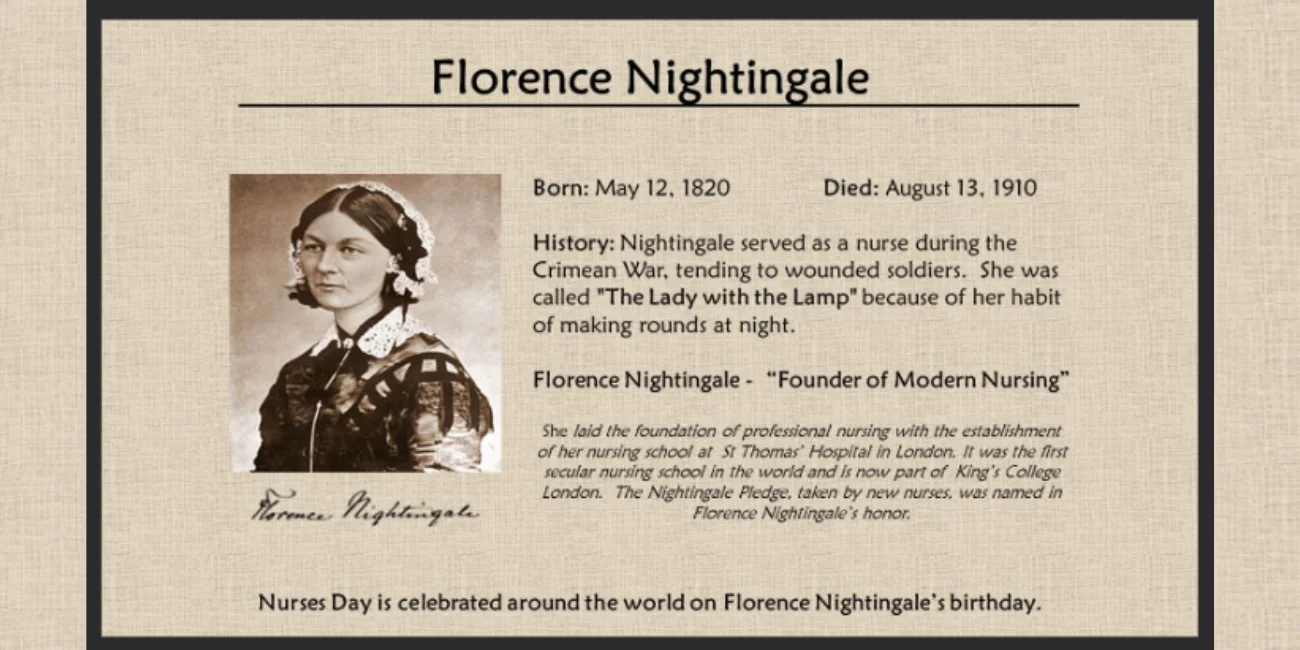
Who is Florence Nightingale?
Nightingale’s impact was immediate and profound. She implemented strict hygiene protocols, improved ventilation.
Florence Nightingale’s defining moment came during the Crimean War (1853–1856). In 1854, she was asked to lead a group of nurses to care for wounded British soldiers. When she arrived at the military hospital in Scutari (modern-day Istanbul), the conditions were appalling—filthy, overcrowded, and rife with infections like cholera and typhoid. Mortality rates were shockingly high, with more soldiers dying from diseases than from their injuries.
Nightingale’s impact was immediate and profound. She implemented strict hygiene protocols, improved ventilation, and ensured proper sanitation. These changes drastically reduced the hospital’s mortality rate, reportedly from 42% to 2%. Her tireless dedication to patient care earned her the nickname "The Lady with the Lamp" as she made rounds late into the night, bringing comfort and hope to soldiers.

